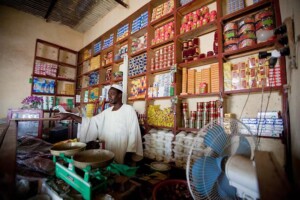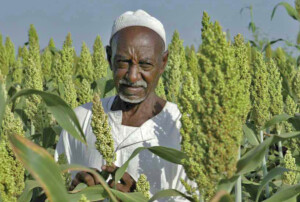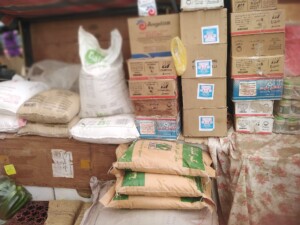Farmers face ‘one of the worst agricultural seasons experienced in Sudan’
Farmers in the El Gezira and El Managil region, located between the Blue and White Niles south of Khartoum, stated that high production costs and taxes threatened the current agricultural season.
 Farmers harvesting in Sudan's El Gezira fields (file photo)
Farmers harvesting in Sudan's El Gezira fields (file photo)
Farmers in the El Gezira and El Managil region, located between the Blue and White Niles south of Khartoum, stated that high production costs and taxes threatened the current agricultural season.
Mohamed El Hasan, a farmer in El Gezira, told Radio Dabanga yesterday that the “current annual agricultural season is one of the most disappointing seasons that the area has experienced”, due to the high cost of upkeep and increase in taxes.
The cost of preparing four feddans (acres) of land during the current season rose to SDG60,000, El Hasan explained. He added that the preparation for the next winter season will be extremely difficult due to the lack of financial resources.
Rejection
Earlier in September, the El Gezira and El Managil Farmers Alliance announced their categorical rejection of the increased taxes of SDG16,000 per feddan.
Abdeen Bargawi, the official spokesperson for the Farmers Alliance, told the Sudan Today programme on Radio Dabanga, that the increased irrigation fees of SDG6,000 per feddan plus additional taxes amounting to SDG10,000 per feddan, “are equivalent to the amounts required to prepare the land for the upcoming winter season”.
He added that the irrigation channels referred to have already been cleaned for the current season.
Bargawi stressed the farmers’ inability to pay the fees. He called the decision “arbitrary” and asserted that “the increase in fees and taxes on farmers and traders aims to cover the deficit of the country’s treasury.”
The US Dollar is currently selling for SDG580 on the parallel forex market in Khartoum. The official rate fluctuates between SDG569 and SDG582.
Serious concerns
In early June, at the beginning of the rain-fed agricultural season, farmers in El Gezira expressed serious concerns about their ability to start cultivating during the June-to-September main rainfall season this year.
Especially lack of state financial support seems to be a problem. Radio Dabanga previously reported that funded farming in eastern Sudan ‘decreased by half’ this year.
In the past years, farmers were forced to take loans from the Sudanese Agricultural Bank to prepare for the winter season because the bank’s financing of production inputs stopped five years ago, and they have not received any other state support. Farmers expressed their fears saying that “if the situation continues in this way, there will be no cultivation anymore in El Gezira”.











 and then
and then